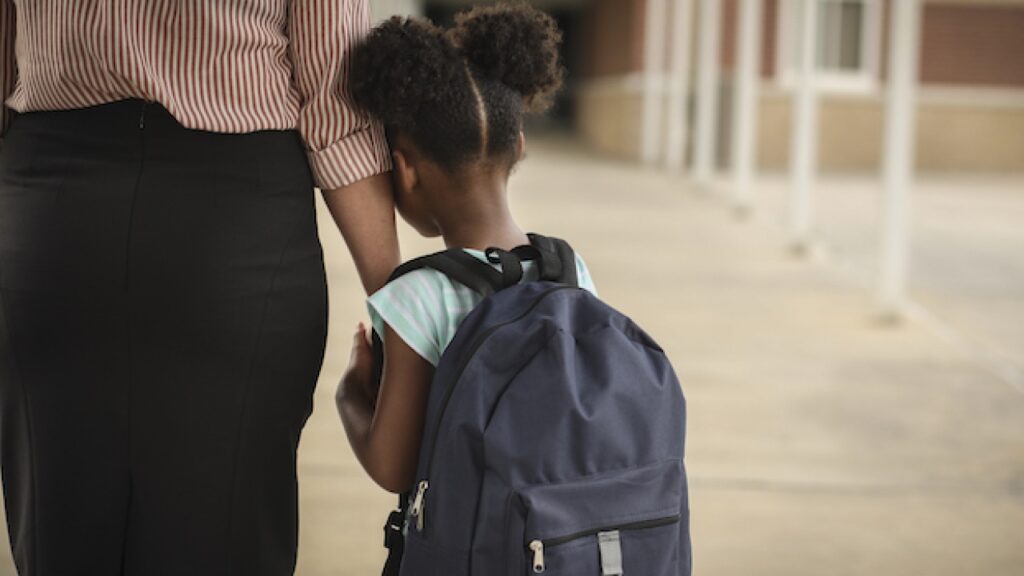The start of a new semester is an exciting time for students as they reunite with friends, meet teachers, and pursue new interests and activities. But for some students, the pressures of academic performance, social dynamics, and personal expectations can take a toll on their mental health in ways that may not be immediately apparent.
This is especially true for children and adolescents with mental health issues: According to CDC data, nearly 1 in 5 children ages 3 to 17 have a mental, emotional, or behavioral disorder, such as anxiety disorder, depression, ADHD, autism spectrum disorder, disruptive behavior disorder, or Tourette syndrome.
“As we begin the new school year, parents, guardians and educators should remain vigilant for signs of stress and worrisome behaviors,” said Sebastian Cisneros Trujillo, MD, medical director of the School-Based Mental Health Program at NewYork-Presbyterian Morgan Stanley Children’s Hospital.
Dr. Cisneros Trujillo, a psychiatrist and lecturer in psychiatry at Columbia University Irving Medical Center, emphasized that early diagnosis and treatment are crucial for children with mental and behavioral disorders. Unfortunately, many children and families lack access to quality, local behavioral health care, putting necessary interventions out of reach.
Filling the gap in psychiatry
School-based mental health programs can play a transformative role in closing this gap. Since the early 1980s, the NYP-Columbia School-Based Mental Health Program has worked to ensure students receive timely and effective treatment without the travel or expense. The program provides behavioral health services, including assessment, treatment, and referrals, through on-site clinics located in Upper Manhattan public schools. These clinics are run by a multidisciplinary team affiliated with the Columbia University Department of Psychiatry.
Columbia Psychiatry News spoke with Dr. Cisneros Trujillo about the impact of school-based care, why integrating social-emotional learning into the curriculum is essential to success, how the NYP-Colombia program works with communities and families, and more.
What are the biggest mental health challenges facing students in grades K-8?
Years after the COVID-19 pandemic, a growing number of children continue to need additional educational and mental health supports. These students are dealing with anxiety, depression, self-harm, grief, trauma, and attention-deficit hyperactivity disorder. The pandemic has amplified these concerns, especially in under-resourced communities where trauma and loss overlap.
Can you describe the types of interventions that mental health professionals in the field provide?
The school-based mental health program works with 14 public schools (K-8) in Upper Manhattan to provide targeted treatment based on each child’s needs, offering individual and group psychotherapy, psychopharmacology, and case management services. The clinical team also offers prevention initiatives such as teacher training and caregiver workshops. Schools are an ideal setting for students to receive prevention and intervention services in a non-stigmatizing environment.
What key things did you observe while participating in the program that influenced your role as medical director?
Having worked as a psychiatrist in a school-based program for three years, I cannot overemphasize how important it is for mental health professionals, school staff, and families to work together to create a supportive environment for children and adolescents. Schools are often on the front lines of identifying youth and families with mental health needs. Early detection and intervention can make a huge difference in the trajectory of a young person’s life.
Is there data to show the impact of the program on student well-being?
In recent years, there have been significant improvements in school attendance and academic achievement, especially in mathematics and English language proficiency. Preventive efforts, including trauma-informed interventions for teachers, have improved coping mechanisms in the classroom, enhanced student engagement, and improved classroom management. Teachers report increased satisfaction as a result of these interventions.
What are strategies to enhance students’ social, emotional, and behavioral adjustment?
Our team works closely with schools to support students, parents, and teachers. Parent support and family services, including case management, are essential, especially in historically marginalized communities. Our programs serve students from Latino communities primarily located around medical centers and hospitals. We also help teachers implement trauma-informed behavior management strategies and teach coping techniques that foster an engaging learning environment. These strategies directly benefit students and teachers feel supported as partners in managing difficult situations.
How will the program engage and support parents and carers?
NewYork-Presbyterian Hospital’s Community Health Needs Assessment 2022-2024 identified mental health as a primary health concern in the community. Support for patients, caregivers and teachers is critical and the need continues to grow. Clinicians offer skill-building workshops in English and Spanish for families and communities on topics such as emotional health, social-emotional learning and early identification of children in need of mental health services. Social-emotional learning helps students understand their emotions and develop social awareness, leading to better academic performance, greater self-awareness and improved behavior.
What are the future directions for addressing the social-emotional learning and psychiatric needs of school communities?
Future directions include improving programs to better meet the needs of our communities, especially as the pandemic has highlighted educational disparities. Continuing to work with schools to address social-emotional learning and psychiatric needs, and expanding access to children’s mental health services, are critical to creating a supportive and healthy environment for young people.



